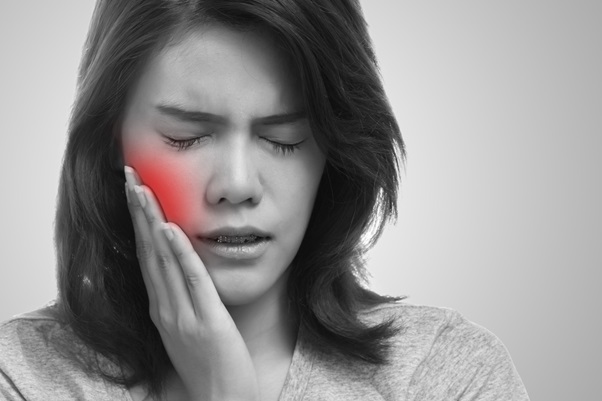Ouch!
If you find yourself thinking “my teeth are sensitive” then you’re not alone, about 1 in 8 people have sensitive teeth. This can be uncomfortable and an inconvenience for day-to-day life. To help combat this, you need to learn the cause of sensitive teeth and how to treat it.
For any issues with your teeth, it’s good to get it checked out as soon as possible. Teeth issues can escalate quickly and become a stressor for both your peace of mind and your wallet. The first step is to do your research like you’re doing now.
Time to dive in.
Why Are My Teeth Sensitive?
The causes of invisalign greenwood in. An underlying issue or something mild could cause it. If you’re a woman between the ages of 20-40 years old, then you’re the prime candidate for teeth sensitivity.
Here are the different causes of tooth sensitivity.
Gum Erosion
Gum erosion is also known as receding gums, and this is when your gums wear away or pull back, exposing the roots of your teeth. This leaves your teeth vulnerable and more sensitive. Gum erosion is very common for people over the age of 65.
Brushing your teeth too hard can cause gum erosion.
Cracked Tooth
A chipped or cracked tooth from an injury can expose the nerves inside a tooth. This, like receding gums, can cause tooth sensitivity and pain. You might feel the pain, particularly when exposed to burning or freezing foods.
Ill-fitting or worn-out filling
A worn-out or ill-fitting filling is a common reason for tooth sensitivity. It exposes old cavities to the same issues as before you got the filling. The tooth may be sensitive to different things, like pressure or temperature.
Exposed Teeth Roots
Many of these causes include exposed teeth roots, but a good general rule of thumb is that if it exposes the roots of your teeth, you will have tooth sensitivity. The protective enamel that would normally toughen your teeth is gone, so there’s a greater chance of sensitivity.
Worn Down Enamel
Enamel is the protective solid layer outside your teeth that ensures that the dentin and tooth nerves aren’t damaged. When enamel gets worn down, you’ll notice that your teeth will become more sensitive to different temperatures. They might also take on a translucent look.
Gum Disease
Gum disease occurs when there’s a serious gum infection that damages soft tissue. Similar to receding gums, gum disease will expose teeth roots. This causes the teeth to become sensitive.
Any of these factors can make the tooth sensitive to the triggers mentioned above, such as heat, cold, sweets, and fillings.
Symptoms of Sensitive Teeth
While sensitive teeth are a symptom in and of itself, other symptoms may occur alongside sensitive teeth. Seeing if you have any other accompanying symptoms will help give you a better idea of what might be causing your problem.
Sensitive teeth may accompany other symptoms, including:
- Bad breath
- Changes in taste
- Pus or discharge
- Gum erosion
- Redness and swelling of the gums
Sensitive Teeth Relief
There are several ways to relieve and prevent sensitive teeth pain. It all begins with practicing good dental hygiene like brushing regularly and flossing.
Here are some options for sensitive teeth relief and prevention:
Desensitizing toothpaste contains compounds that help protect nerve endings from irritants. You’ll notice a decrease in tooth sensitivity after just a few uses.
Since salt is an effective antiseptic, using a saltwater rinse will help reduce inflammation. Just gargle with salt water twice a day.
Hydrogen peroxide is also an antiseptic and disinfectant. Use it as a mouth rinse to help heal guns and treat inflammation.
While it may be difficult to believe, green tea is also an effective way to improve oral health. It can help protect against cavities, gum disease, and bad breath. Use it as a mouthwash twice a day.
One of the tastiest ways to relieve teeth sensitivity is using warm water and honey. Since honey has antibacterial properties, it can help speed healing and reduce pain as well as swelling. Just rinse your mouth with honey and warm water.
The best way to take care of your teeth is by brushing twice a day with a soft toothbrush and using fluoride toothpaste. There’s a misconception that you’ll need to scrub vigorously to really clean your teeth, but that’s not correct, gentle strokes are the way to go. If you grind your teeth, consider purchasing a mouthguard.
Try minimizing any triggers that might irritate your already sensitive teeth. This includes acidic foods or drinks, and things that are too hot or too cold.
If you are concerned about the condition of your teeth, you can visit Casco Bay Smiles for a consultation. This is the first step to improving the conditions of your teeth.
My Teeth Are Sensitive, What Do I Do?
It can be a huge nuisance to walk around with your teeth aching all day. The last thing you want to constantly be thinking is “ugh, my teeth are sensitive”. To combat this, you’ll need to know what the causes could be and what treatment options there are.
While researching is great, if you feel like your teeth sensitivity is too much, visit your local dentist’s office for a consultation. Dental problems can escalate quickly, so don’t want too long to take action. You’ll end up saving yourself from a lot of headaches and money wasted.
If you found this informative and helpful, check out the health and fitness section of our blog!










